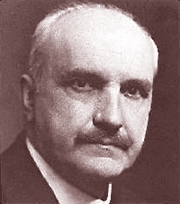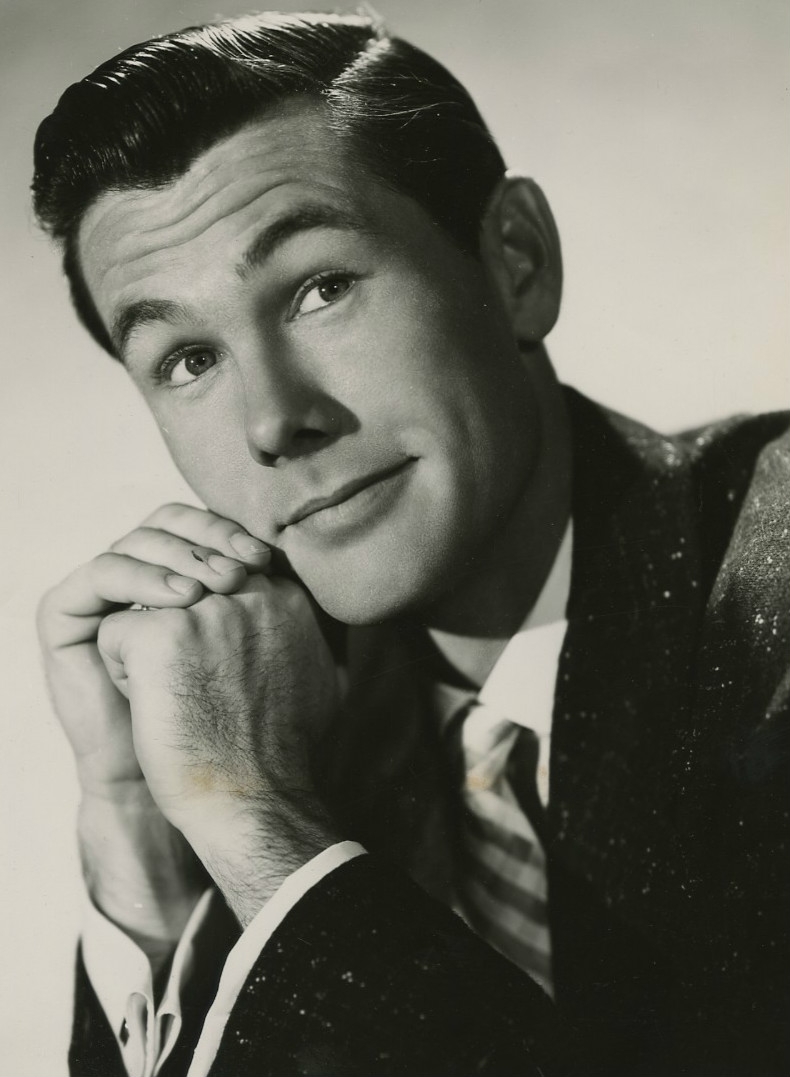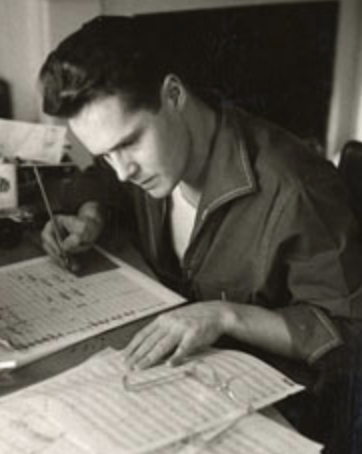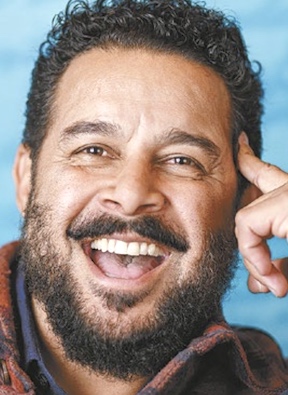October 23
George Santayana (Quote)

“Christianity persecuted, tortured, and burned. Like a hound it tracked the very scent of heresy. It kindled wars, and nursed furious hatreds and ambitions. It sanctified, quite like Mohammedanism, extermination and tyranny.”
— Santayana, philosopher (1863-1952), "Christian Morality," "Little Essays, No. 107"
Johnny Carson

On this date in 1925, television host and comedian John William “Johnny” Carson was born to Ruth and Homer Carson in Corning, Iowa. He spent his childhood in Iowa and Nebraska and by age 14 was performing magic tricks locally as “The Great Carsoni.” After a stint in the U.S. Navy, he attended the University of Nebraska-Lincoln, earning a bachelor’s in radio and speech along with a minor in physics. Carson started his broadcasting career as a host for WOW’s radio and television programs in Omaha.
Moving to Los Angeles in 1951, he grew a fan base with “Carson’s Cellar” on KNXT-TV and worked for Red Skelton as a writer. He also hosted several game and variety shows, including “To Tell the Truth, “Who Do You Trust?” and short-lived “The Johnny Carson Show.” In 1962 he replaced Jack Paar on NBC’s “The Tonight Show” and proceeded to become one of the highest paid and most beloved entertainers in history. He hosted “Tonight” until May 22, 1992, and received six Emmy Awards, a Peabody and the Presidential Medal of Freedom.
Carson was a major financial supporter over the years of the James Randi Educational Foundation and regularly featured skeptic James Randi, who exposed several televangelists on the show. Randi treasures a letter from Carson in which he quoted the philosopher Francis Bacon’s admonition that “a credulous man is a deceiver.” Quiet and reclusive in his private life, he preferred to avoid public events and interviews but occasionally engaged in them. “In my living room I would argue for liberalization of abortion laws, divorce laws, and there are times when I would like to express a view on the air. I would love to have taken on Billy Graham. But I’m on TV five nights a week; I have nothing to gain by it and everything to lose.” (Life magazine, Jan. 23, 1970)
In 1981 he created the John W. Carson Foundation to support children’s charities, education and health services. Upon his death he left the foundation $156 million. He also donated millions to the University of Nebraska and to causes in his hometown of Norfolk. He was married four times. His wives in order were named Joan (aka Jody), Joanne, Joanna and Alexis. He had three sons with Jody. Their middle son, Richard, died tragically at age 39 in a car accident in 1991.
Carson died at age 79 of complications from emphysema. As per his wishes, he was cremated and no public memorial service was held. (D. 2005)
“[I]t appears that religion was a more casual affair in the Carson household than it was in the Welks’, and Johnny apparently never made church-going part of his adult lifestyle nor considered religion to be an important part of his life.”
— Historian John Miller, "From the Great Plains to L.A.: the Intersecting Paths of Lawrence Welk and Johnny Carson" (Virginia Quarterly Review, Spring 2003)
Ned Rorem

On this date in 1923, Pulitzer Prize-winning composer Ned Rorem was born in Richmond, Ind., where he was raised as a Quaker. He studied at the University of Chicago Laboratory Schools, the American Conservatory of Music, Northwestern University, the Curtis Institute in Philadelphia and the Julliard School in New York City. A hugely prolific composer, Rorem wrote operas, symphonies, chamber music, concertos and numerous vocal works.
He lived in France for nine years and In 1966 published The Paris Diary of Ned Rorem, an account of his sexuality and that of his partners, who allegedly included Leonard Bernstein, Noël Coward, John Cheever, Samuel Barber and Virgil Thomson. He also wrote extensively about music. His essays, collected in the anthologies Music From the Inside Out (1967), Music and People (1968) and Setting the Tone (1983), are generally acclaimed by critics for his prose style and revealing looks at contemporaries.
Rorem was the recipient of a Fulbright Fellowship (1951), Guggenheim Fellowship (1957), National Institute of Arts and Letters Award (1968) and Pulitzer Prize for Music (1976) for his suite “Air Music: Ten Etudes of Orchestra.” Time magazine called him “the world’s best composer of art songs.” His companion of 30 years, James Holmes, an organist and choir director, died at age 59 of AIDS in 1999 at their home in New York City. Rorem died at home at age 99. (D. 2022)
PHOTO: Rorem at age 30; Library of Congress photo.
“Now that I’m closer than I was a year ago to the unknown, I’m very much an atheist and more so every day. I think we’ve invented God to give some sort of meaning to life because life doesn’t have any meaning. We’ve certainly invented money for that and we’ve invented art for that. It helps us kill time before time kills us. I’m not in despair, but I’m melancholy most of the time. But if I died today I’m not ashamed of what I’ve created.”
— Rorem, quoted in the San Francisco Chronicle (Sept. 10, 2003)
Jon Huertas

On this date in 1969, actor Jon Huertas (né Jonathan William Scott Hofstedt) was born in New York City to a Caucasian mother and Puerto Rican father. Raised Catholic by his grandparents, Huertas calls himself Afro-Latino because he says 90% of the slaves brought from Africa to the New World ended up in the Caribbean, Mexico and Central and South America.
He attended Catholic elementary school until eighth grade. “I was pushed into the theater as an outlet because I was getting into trouble. The nuns decided, ‘If he’s going to act out, put him on stage.’ That’s where I caught the bug for entertaining and performing.” (Authority Magazine, Feb. 8, 2024)
He was an inquisitive child: “I started asking questions from a very young age.” At about age 8, adults started letting him off the hook on things he grew up with like the tooth fairy, Santa Claus and the Easter bunny. “Once they started to be unveiled, I then thought maybe this whole Jesus, Mary and Joseph and God thing was also something I should be let off the hook for.” (“Dirty Rotten Church Kids” podcast, Dec. 7, 2022)
And while he had pretty much stopped believing what the church was teaching, he kept serving as an altar boy because “you got all these privileges, so I would take advantage of that.” One task was counting out the communion wafers, about half of which went into his pocket to snack on later, arguably the height of irreverence. (“Freethought Matters,” May 19, 2022)
After high school and a year of college, he served eight years in the U.S. Air Force as an aircraft nuclear/conventional weapons specialist and participated in Operation Just Cause and Operation Desert Storm. Then, in his mid-20s, he headed to California and landed a few small TV roles. Larger recurring ones gradually followed, including six episodes of “Undressed” on MTV and 12 on ABC’s “Sabrina, the Teenage Witch” in 1999.
Huertas’ breakout role came in “Generation Kill” (2008), a seven-part HBO series in which he played Sgt. Tony “Poke” Espera in a drama about the 2003 invasion of Iraq. From 2009-16, Huertas starred as Detective Javier Esposito in ABC’s police procedural “Castle.”
From 2016-22 he played Miguel Rivas on the NBC drama “This Is Us.” His directorial debut came in the Season 5 episode “The Ride.” After the series ended, Huertas and his co-stars and creator Dan Fogelman formed the Somos Nosotros Fund to award scholarships supporting Latinx students. Actor Ricardo Montalbán’s arts advocacy group Nosotros collaborated. Montalbán and actor John Leguizamo are two of Huertas’ role models.
He married his longtime girlfriend Nicole Bordges, a business development and marketing executive, in 2014 in Tulum, Mexico. He participates in secular Día de los Muertos (Day of the Dead) events and keynoted one held by Atheists United in 2021 in Los Angeles, titling his speech “From Heartsick and Holy to Happy Heathen.”
He resists calling himself an atheist and prefers nontheist or humanist. “For me it’s better not to use it personally because as soon as I use it, it might turn someone off to a conversation we might be able to have about our beliefs.” (Ibid., “Freethought Matters”)
PHOTO: Huertas at FFRF’s 2024 national convention in Denver; Chris Line photo.
“I treat people good for goodness’ sake, not because I’m going to be rewarded in an afterlife.”
— Interview, "Freethought Matters" (May 19, 2022)
